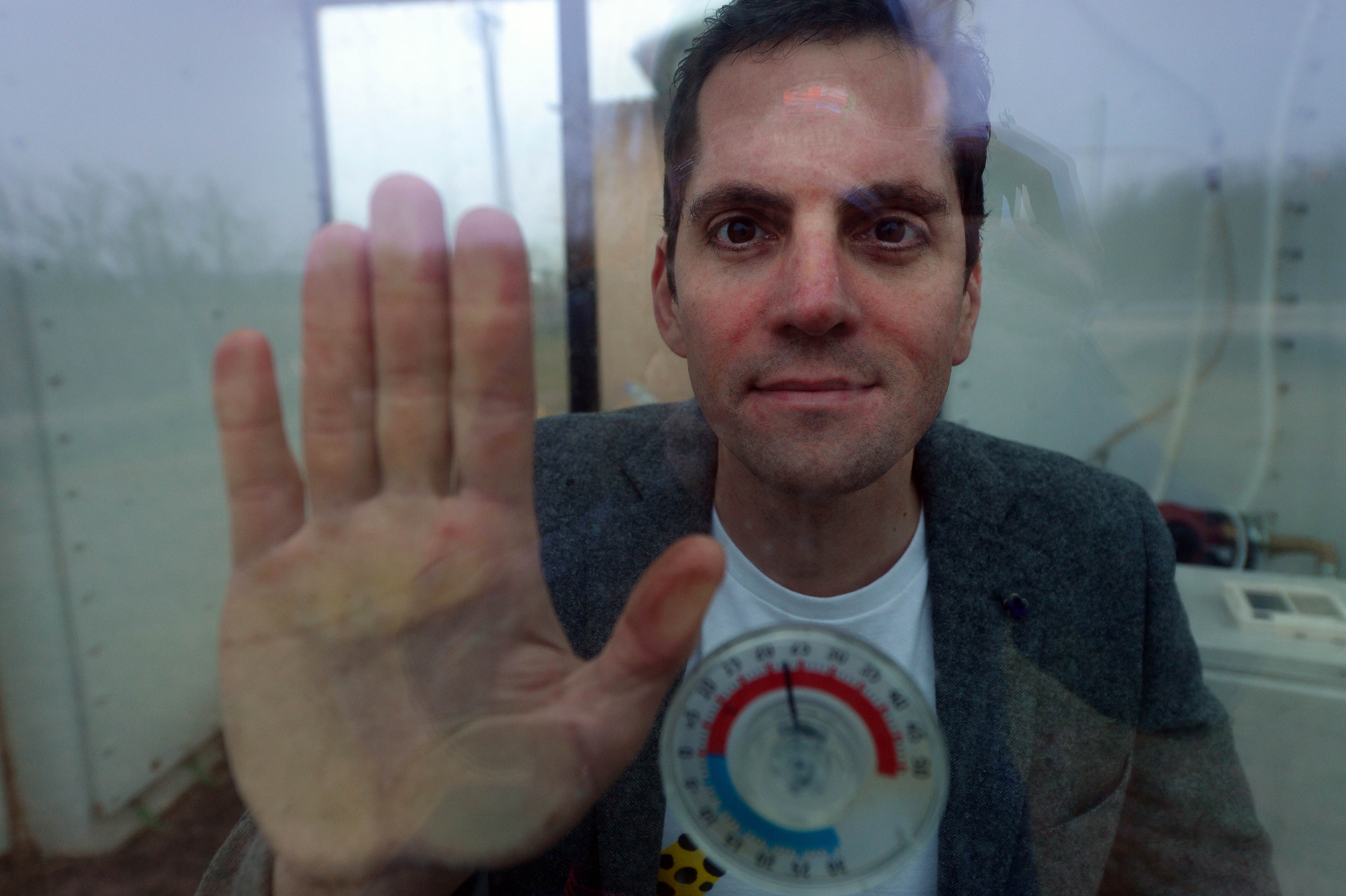I first heard Alja’s name last year when we were looking for an inspiring speaker to come to our conference on digital skills. She is a geek, tech blogger, start-up mentor, co-founder of Europe Code Week, coding workshops organizer, and a woman who dreams of seeing other women in tech. A super-woman of sorts who brings passion and personality into all of her projects, Alja is a role model to all Slovenian girls and women. I had the opportunity to speak with Alja about her accomplishments as well as what she is doing to pave the road for women in tech. Here are excerpts of our conversation.
You currently work for a hardware startup, Koto, that develops smart sensor cubes for indoor monitoring. What else can you tell me about this?
Our focus is on building smart technologies for healthier buildings. We’d like to make every room healthier, more productive or more pleasant to live in with easy-to-use sensors that also happen to look great.
We announced our first product CubeSensors in 2013 and have been shipping for almost two years now, but we still have a long way to go. I’m always a bit hesitant in calling any start-up successful. But it’s been a great journey so far, mostly due to a great team that has been able to create a great Slovenian product on a very tight budget.
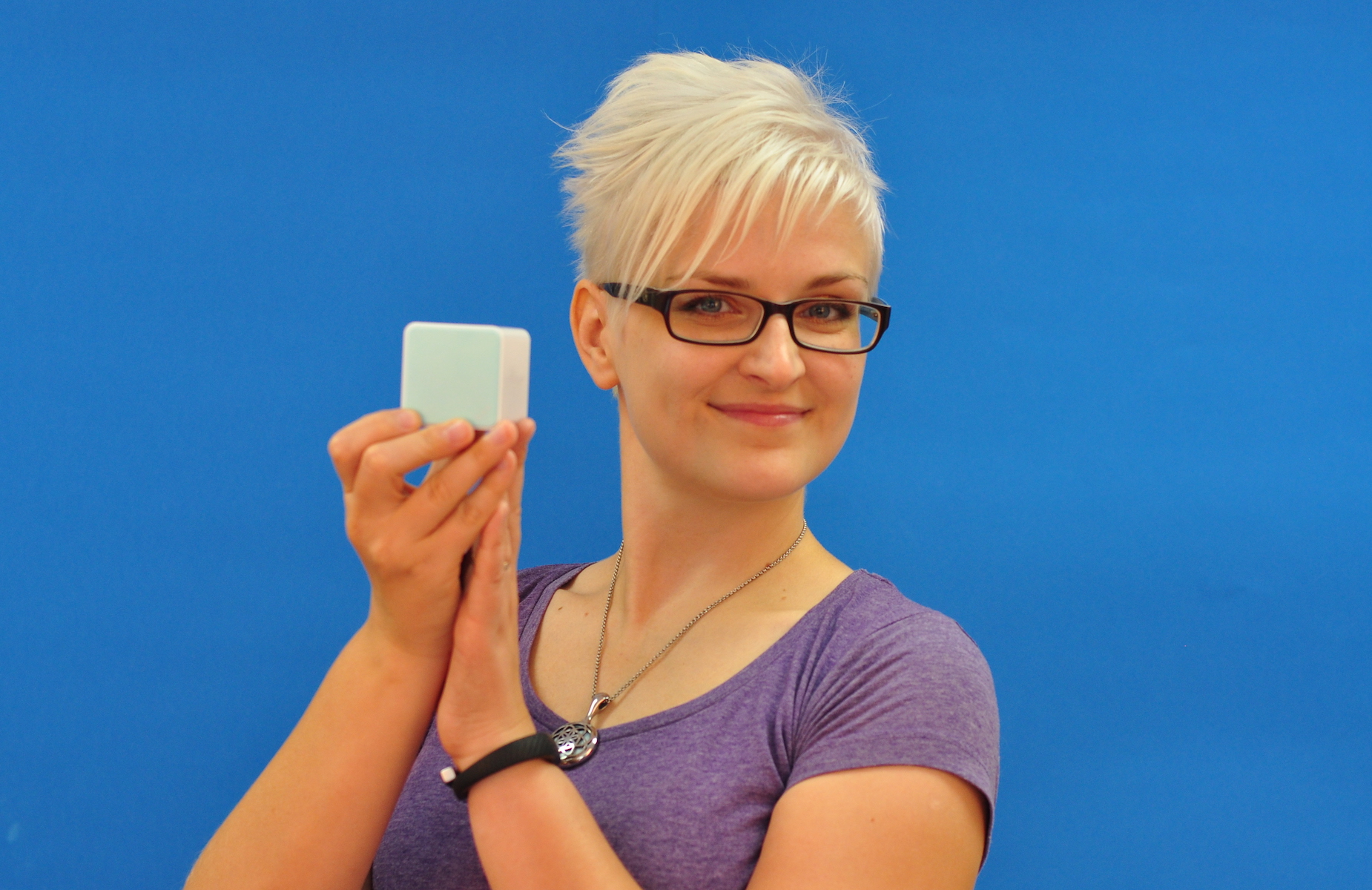 In the Photo: Alja and the CubeSensors from Koto. Photo Source: Hana Josic
In the Photo: Alja and the CubeSensors from Koto. Photo Source: Hana Josic
You’re involved in so many activities and projects. What fascinates you about the tech world?
I enjoy discovering new technologies and figuring out how they can improve our lives. Being faced with something new is always challenging, but there’s no better feeling than figuring out how something works and trying to apply it to a problem you’re having.
I’ve always enjoyed sharing what I’ve learned with others – I was actually planning on going into academia before starting with entrepreneurship. I ended up choosing the startup path because of the joy of being able to create a new product, not just study it, which is why I was drawn to join a hardware startup where I work now. The feeling of actually holding the product you’ve helped to build in your hands and seeing it being used by people is unbelievable.
“IS BERLIN THE NEXT TECH STARTUP CAPITAL?” by JULIA VOLYANSKA
“THE TRUTH ABOUT STARTUP IDEAS” by ANTTI KAUNISTO
I know you support Rails Girls and Django Girls – coding movements – in Slovenia. How can we get more women excited about technology? What changes are needed to incorporate more women in the field?
Communities like Rails Girls and Django Girls are indeed very helpful for raising awareness: they break down stereotypes about programming as a boring profession for geeky guys, and they start new conversations.
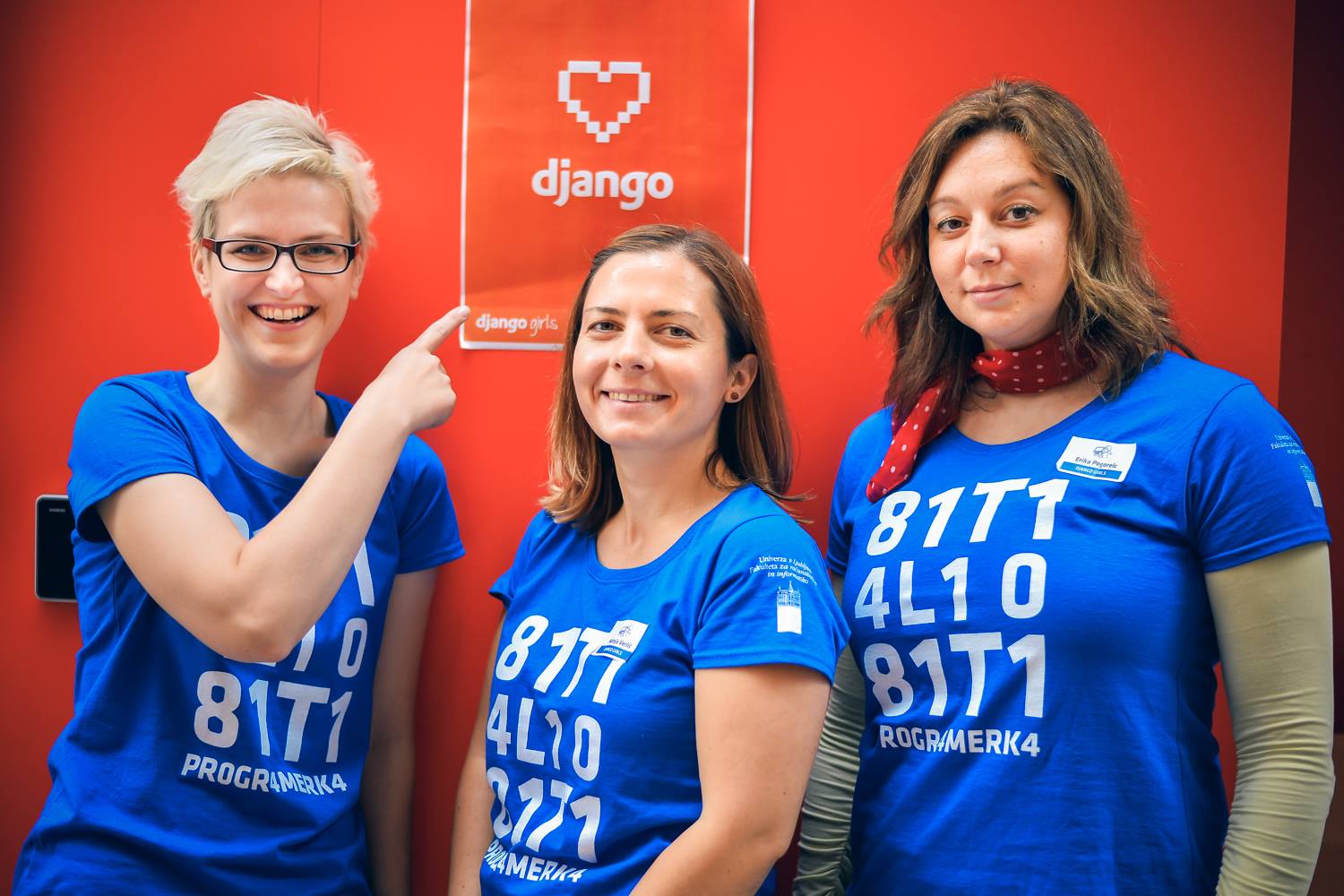 In the Photo: Alja at Django Girls coding session. Photo Source: Hana Josic
In the Photo: Alja at Django Girls coding session. Photo Source: Hana Josic
I think it’s especially important to get more teenage girls excited about technology as a tool that can be used creatively for a wide range of purposes. Role models are important here, but our schools also need to catch up with the world we live in and the fact that they need to prepare students for jobs that might not even exist yet. There should be less focus on memorization and standardized tests, and more focus on developing problem solving skills, with and without technology.
We need to foster curiosity, creativity, and a desire to create things, where technology becomes a tool worth learning, regardless of gender.
On the other hand, we also have to encourage companies to create more welcoming and safe work environments for women (and other minorities). Women leaving the ICT sector for various reasons is still a big issue. So we also have to address the leaky pipeline if we want to make the field more interesting to women in the long run.
What could educational institutions do to overcome stereotypes associated with the ICT sector?
The first step is to acknowledge that stereotypes exist, which isn’t always easy. Once you have that realization, there are a number of things that can be done to make STEM education more interesting for women (and other minorities).
As the Harvey Mudd example shows, it’s important to make the content relevant and the learning environment welcoming for beginners who might not have been exposed to the subject before. Also, providing role models from an early age helps. Right now, the most successful tech people and startup founders are these geeky, white guys that only a fraction of the population can relate to. So I think it’s encouraging that diversity is becoming a hot topic and that we’re trying to spotlight more people from diverse backgrounds that make great contributions to the field.
From my personal experience – I was lucky to have been brought up by a mother, who was very comfortable with technology, so it was only later in life that I realized I was interested in a field where women are still a minority. A big eye opener were the hundreds of applications we received for the first Rails Girls workshop I organized in Ljubljana. I was surprised by the overwhelming number of women who described their brothers, fathers, and even friends dismissing their interest in technology just because of their gender. A lot of women wanted to attend our workshop because this was the first time somebody showed them that programming is something that women also do.
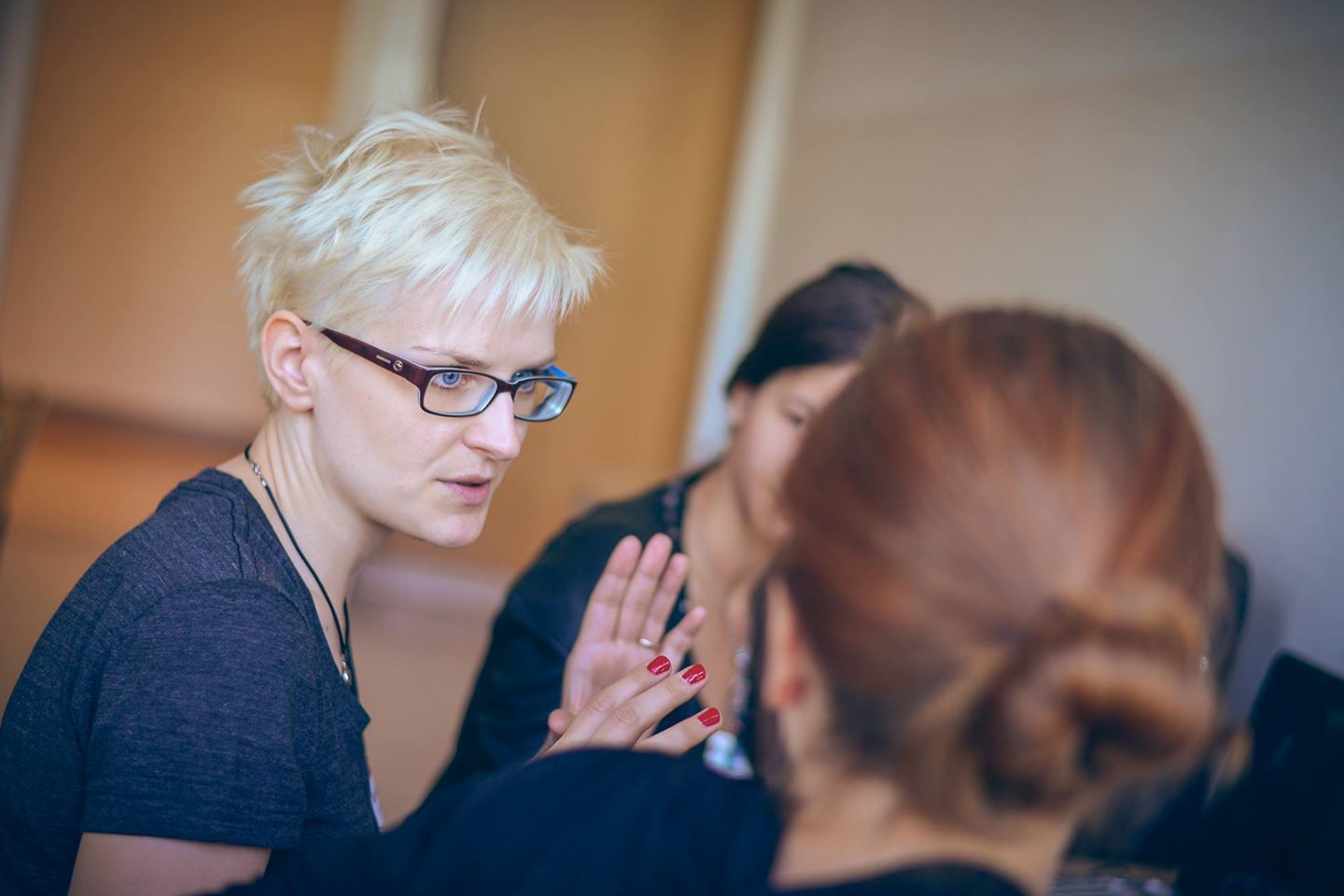 In the Photo: Alja speaking with students at CodeCatz. Photo Source: Hana Josic
In the Photo: Alja speaking with students at CodeCatz. Photo Source: Hana Josic
Do you know any companies that inspire women to develop a career in tech or specifically encourage diversity in their hiring process? How do they do it?
Etsy is a great example of a company that decided to make diversity a core company value. They support female engineers with a scholarship program, which helps them recruit the best candidates. They hire junior engineers and provide them with the right mentorship and support that helps the engineers develop professionally and succeed in their jobs.
Saying you want to hire more women isn’t enough; It takes an active approach, integrating diversity into your company’s culture, and providing support to minorities entering the field (again, not just women). It’s been proven that businesses with greater gender and ethnic diversity perform better, so active hiring of diverse employees and keeping them on board should be seen as a competitive advantage.
Describe the startup scene in Slovenia? Did you experience any challenges as an entrepreneur in Slovenia?
There’s a lot of interest in startups in Slovenia and it’s great to see more people starting their own businesses. Starting a company is fairly easy, although there’s still room for improvement (especially when compared to some other EU countries, like the UK or Estonia). Unfortunately, it’s still hard to get a big investment from Slovenia (especially for hardware), and there’s still a lot of bureaucratic barriers that take too much precious time from entrepreneurs.
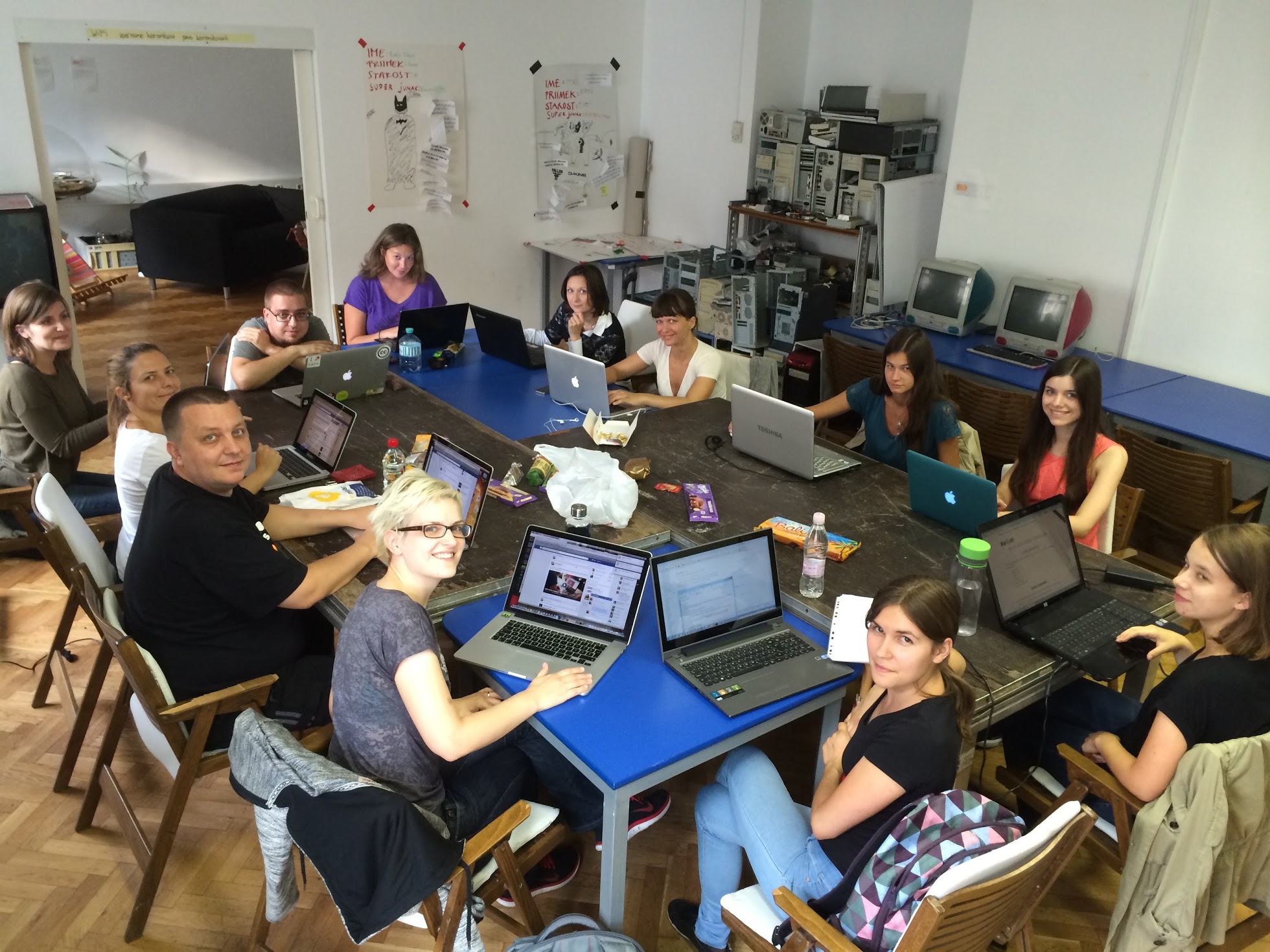 In the Photo: Alja at Codecatz.
In the Photo: Alja at Codecatz.
Why do you think some startups succeed and some fail? What is the key to startup success and what are the necessary skills an entrepreneur needs?
Usually it’s a combination of many things. I think having a great team is extremely important. Working in a great team makes it easier to come up with great solutions and persevere even when things aren’t going so well. And it’s important not to fall in love with your initial idea. A startup should be able to adjust to the market quickly, even if it shifts its basic idea in the process. The idea is just the first spark that brings a team together, after that there’s a lot of hard work, persistence, sales… and a bit of luck in the end. Being in the right place at the right time also matters.
We can be overwhelmed with all that technology has to offer us. How do we learn to make use of it and not feel tangled up with it?
It’s easy to feel overwhelmed by the abundance of information and technologies available for us. But we shouldn’t let this feeling cripple us. The key is to just start somewhere. And accept the fact that you can’t know everything. Just start somewhere and work from there. For me, that’s part of the thrill: always having more to learn, always having the opportunities to be inspired and awed by new discoveries!
What piece of advice would you give to women (and not only) who are dreaming of starting their own business but for one or another reason hesitate?
Just do it :) And don’t worry about failing. Failing isn’t as terrible as we imagine it to be. Sure, it’s unpleasant, but not tragic. More than anything, it’s a great learning opportunity.
Be sure to check out Alja’s video at EU Code Week!
http://video.webcamp.si/wc2014_lt_isakovic_from_hello_codekitty_to_codeeu/






